Talleyrand, the Perfect Politician
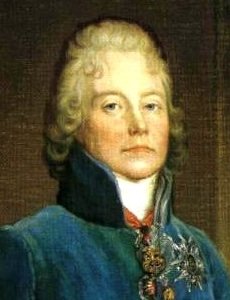 Charles Maurice de Talleyrand-Périgord was born in 1754 and died in 1838. He lived through probably the most significant period in French history, and was involved in it throughout. In this he is practically unique, as nobody else managed to move through the dangerous waters of the time without falling prey to them. Yet as regime swapped out for regime Talleyrand effortless rode from one wave to the next, without ever even breaking a sweat. Not for nothing is his name still a French term for the consummate conviction-free politician.
Charles Maurice de Talleyrand-Périgord was born in 1754 and died in 1838. He lived through probably the most significant period in French history, and was involved in it throughout. In this he is practically unique, as nobody else managed to move through the dangerous waters of the time without falling prey to them. Yet as regime swapped out for regime Talleyrand effortless rode from one wave to the next, without ever even breaking a sweat. Not for nothing is his name still a French term for the consummate conviction-free politician.
Talleyrand was born in Paris a child of the prestigious Talleyrand-Périgord family, one of France’s oldest (but not richest) families. As such he grew up under a great weight of expectation, with the privilege of rank though not the opulence that 18th century French nobility is associated with. His family had a grand tradition of military service, but Talleyrand was unable to take part in this due to an infirmity in his left leg that gave him a lifelong limp. Talleyrand blamed this limp on a childhood accident, though historians suspect that it may actually have been a congenital defect. Regardless, he could not serve in the military with it and so a family council agreed that he should instead enter the clergy, and that as a result his father’s title of Count should pass to his younger brother. Talleyrand was earmarked to succeed his uncle as Archbishop of Rheims, a wealthy diocese and one of his family’s few influential and powerful positions. Talleyrand’s own views on this were of course not consulted.
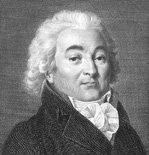
Talleyrand was not a popular student, though it was more through his own dissatisfaction with his situation than any innate lack of likability. He found solace in his studies, becoming an avid and life-long voracious reader, and in his first love-affair – reputedly with an actress who he offered the protection of his umbrella in the rain. In 1779, at the age of 25, he was ordained. The income from his new position allowed him independence from the parents he resented, and he took advantage of this to become part of France’s new thriving intelligentsia. At the time one of his greatest friends was Auguste de Choiseul, a fellow student who had chosen not to be ordained and who would later become famous for his travelogues popularising the ruins of ancient Greece. The third friend who made up their group was Louis de Narbonne, a nobleman and army officer who is sometimes alleged to have been an illegitimate son of Louis XV. The three men became notorious as radical thinkers in a society that was just becoming used to the idea of free thought. Talleyrand himself became notorious enough that King Louis XVI took a personal dislike to him. It was only his family’s assistance that won him the post of Bishop of Autun in 1789, as the King retained the right to grant bishoprics in France at the time. Yet that appointment was to change the course of Talleyrand’s life. The reason was that as a Bishop, he was now entitled to a seat in the newly convened Estates-General. The young radical now had the opportunity to put his opinions into action.
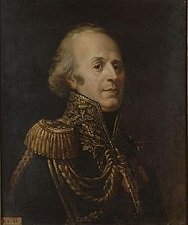
Like the English Parliament, the Estates-General had its origin in taxation, and the desire to ensure that taxes would be accepted. The last had been called in 1614. This one was called due to a burgeoning economic crisis caused by the financial mismanagement of the country under its relatively new and weak King. The Estates-General drew from the Three Estates – clergy, nobles and commoners – and it was this that proved to be their downfall. Rather than figuring out economic solutions, the Assembly spent its entire time arguing whether the voting should be absolute, with all delegates having one vote (giving the commoners the advantage), or by Estate, with each of three deciding on their vote internally and then casting a single ballot (which would allow the clergy and nobles to overrule the commons). Though most clergy supported the block voting system, Talleyrand argued for equal voting rights. This aligned him with the rising tide of the French Revolution, and when the representatives of the Third Estate declared the Estates-General invalid and set up their own National Assembly, Talleyrand was one of the first clergymen from his Estate to cross the line and take up seats there.
France was a Catholic country, but the power of the Vatican had been severely weakened there with the King having the right to appoint bishops rather than the Pope, for example. Naturally, with the King’s power now being absorbed by the Assembly they began to take on that power over the church. Talleyrand became the effective leader of the revolutionary clergymen – ironic, as he himself had long ago abandoned any pretence of actual faith. He was a key proponent of the Civil Constitution of the Clergy, effectively an attempt to establish a state religion (similar to the Church of England) that would retain Catholic forms and basic theology, but have loyalty to the government. This earned him an excommunication as well as the enmity of his family since his uncle, on refusing to swear the Civil Oath, was forced to flee the country.
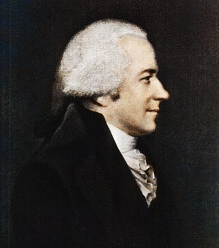
As the Revolution became more and more radical, Talleyrand was smart enough to see the danger that was coming. He was in Britain in an unofficial capacity in 1792, trying to persuade them not to join the alliance against France, when news reached him of the September Massacres, where mobs broke open the prisons and murdered all the prisoners for fear of them being released by invading forces. Sensibly he decided that his own views, once radical, were no longer radical enough to satisfy the mob and so he stayed in London. This was interpreted as treason by the National Convention (which had replaced the Assembly) and a warrant was issued for his arrest. In March of 1794 he was expelled from England and made his way to America, where he stayed in Philadelphia. Though he had a letter of introduction, his dangerous reputation led Washington to refuse to see him. Instead Talleyrand became friends with Alexander Hamilton, who he regarded as one of the greatest statesmen of the age. Ironically he also became friends with Aaron Burr, though when Burr attempted to visit him in Paris years later he would be coldly refused due to having killed the man whose portrait, he was informed, hung above Talleyrand’s fireplace.
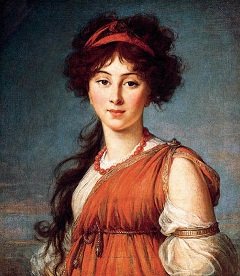
The radical government that Talleyrand had fled from was overthrown near the end of 1794, but his name remained on the wanted list for several years. Those who had fled the country had been automatically branded as traitors under the old regime, and the new one was slow to reverse the declarations. One voice calling for his pardon was his friend (and possible lover) the author Germaine de Staehl, a fellow French emigre who he had met during the English years of his exile. Her husband was the Swedish Ambassador to France, and so her word carried some weight. The new government also remembered Talleyrand’s talents, and recognised that he had cultivated a broad network of contacts during his exile that could be useful. In September 1796 he was permitted to return to France. By the following year he had been made Foreign Minister, and his true political career finally began.
One of the most significant events during Talleyrand’s term as foreign minister for the Directory (as the new government was known) was the “XYZ Affair”, which led to an almost-war between France and America. At the time France and Britain were at war, and American trade with Britain was a sore point. America maintained neutrality, and the right to trade with whomever it chose. The “XYZ” came from the names the Americans gave to the three diplomats involved in the affair, which broke down when “X” (Jean-Conrad Hottinguer) demanded a bribe of £50,000 be paid to “Y” (Talleyrand) before the Americans who had come to negotiate would have their credentials accepted. “Z” (Lucien Hauteval) later visited them to reiterate the demand. The Americans (men of staunch morals) refused to play the bribery game, and found themselves stonewalled. The breakdown in negotiations led to an undeclared but very real war between French and American naval forces in the Caribbean, and poisoned relationships between the two countries for centuries.
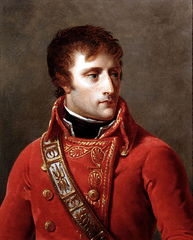
Around the same time Talleyrand became acquainted with a Corsican named Napoleon Bonaparte, whose incredible skill at leading an army had made him the pre-eminent French general of the time. The two became friends and corresponded during Napoleon’s campaigns in Italy and Egypt. Over time Napoleon became more powerful and roused the ire of the Directory, but they lacked the power to bring him to heel. Instead it was Napoleon, along with Talleyrand and a collection of other notables, that brought them down in 1799, making Napoleon the First Consul – effectively a dictator. For his loyalty Talleyrand retained his position through the regime change.

Relations between Talleyrand and Napoleon were somewhat frayed at best. For example in 1802 Napoleon, who had a strong moral streak, insisted that Talleyrand marry his long-term mistress Catherine Grand. In order to do so he had to get the Pope to release Talleyrand from his bishop’s vows, though this was easy as he controlled the Vatican at the time. Ironically four years later Napoleon would make Talleyrand the prince of one of the Pope’s fiefs, Benevento. Talleyrand also reportedly did extremely well out of Napoleon’s German conquest, becoming extremely wealthy. Though this may not have been enough for him, as Talleyrand began taking bribes from Russia and Austria. He would secretly brief foreign diplomats to enable them to win negotiations against his own side. Though this was definitely treason, he would justify it as the only way he could influence the negotiations – Napoleon rarely left him any power over the French position on foreign affairs, one example being his staunch opposition to the sale of Louisiana to the Americans in 1803, which was utterly ignored. In 1807 he had finally had enough of this and resigned from his position of Foreign Minister, though he remained on Napoleon’s council. By the following year he and the Emperor had become so much at odds that Napoleon declared Talleyrand “a turd in a silk stocking” to his face. Unsurprisingly Talleyrand did little to exert himself to prevent power slipping from Napoleon’s grasp.
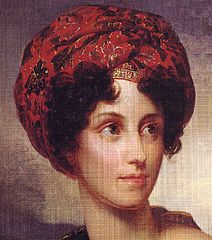
When Napoleon met Talleyrand for the last time in 1814, he declared him “a coward, a traitor and a thief”, but Talleyrand responded that it was France, rather than her ruler, that had his loyalty. It was due to his negotiation at the Congress of Vienna that France was able to retain its national borders as they had been in 1792, rather than suffering punitive confiscations. Napoleon’s brief return from exile in 1815 nearly undid all of Talleyrand’s treaties, but luckily for him they had all already been signed, and Napoleon’s swift defeat meant that they were not rendered void. Despite the protests of the returning royalists that he was a “revolutionary”, Talleyrand secured the post of first ever French Prime Minister. The post was far too public for his tastes, however, and by September, having overseen the transition, he resigned. He effectively retired to the back benches, content to guide the new government from a distance. In 1830 he became the Ambassador to the United Kingdom, a post he held until 1834. In 1838 he died. His memoirs, published 53 years later, paint a picture of a man determined to do whatever he could to safeguard his country. He was more remembered however as the consummate politician, cynical and cutting, always ready with a quip and willing to point his moral compass to follow the prevailing wind. He may have saved his country from itself, but he sacrificed his honour to do so. Perhaps it was a sacrifice he was willing to make.
Images via wikimedia.
